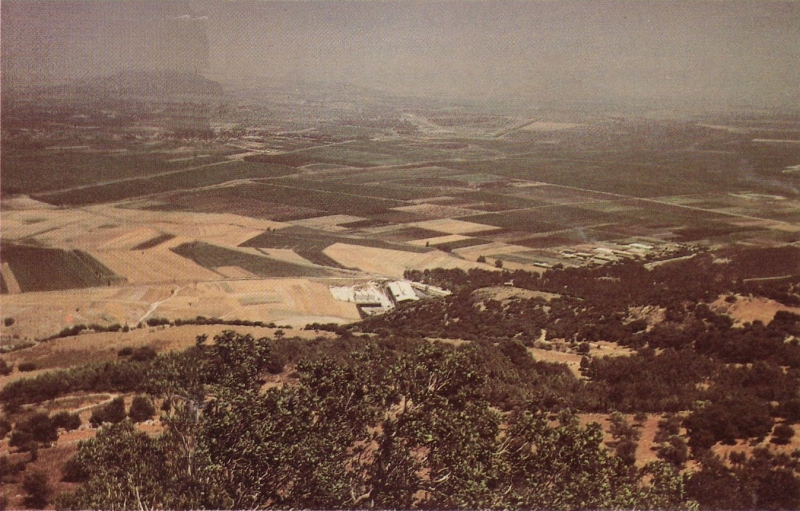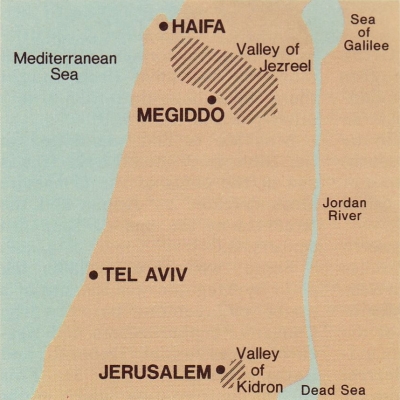Few understand the real meaning of this much-misused biblical term.
THE WORD Armageddon is familiar to just about everyone. Statesmen, scientists and generals warn of the dire prospects of a "nuclear Armageddon" that could annihilate mankind from the face of the earth.
Many believed that World War I — and later World War II — would end with Armageddon. Some today believe that Armageddon will be the last battle between the democratic West and communist East.
But did you know that nowhere in the Bible — from Genesis to Revelation — is there any mention of a future "Battle of Armageddon"?
The Bible, of course, does reveal a great military confrontation to occur at the end of this age! But it is not called the Battle of Armageddon.
Hill of Megiddo
The word Armageddon is found only once in all the Bible — in Revelation 16:16. That scripture reads:
"And he gathered them [the kings of the earth and their armies — see preceding verses] together into a place called in the Hebrew tongue Armageddon."
We see here that Armageddon is described in the Bible as a place, not an event. It is a place where armies gather. But notice that there is no mention of Armageddon being a battlefield, an actual scene of fighting.
Where is this place called Armageddon?
The word Armageddon is a Greek form of the Hebrew name Har Megiddon. It means "hill (or mountain) of Megiddo." Megiddo is an ancient town of Palestine. It is in the modern state of Israel on the southern rim of the large flat expanse of the plain of Esdraelon (also called the valley of Jezreel).
Megiddo lies about 55 miles north of Jerusalem, and about 15 miles inland from the Mediterranean Sea.
From the huge mound of Megiddo that today marks the site of the ancient city, one enjoys a commanding view of the valley of Jezreel stretching out to the northwest far into the distance (see photo). Jezreel is Israel's largest and most fertile valley and is often referred to simply as Ha'emek, "The Valley."
|
Here the world's armies will gather before the prophesied final battle.
From the hilltop site of the ancient city of Megiddo one enjoys a commanding view
of the valley, also called the Plain of Esdraelon

Photo by Sylvia Owen — PT
|
|
Ancient Battlefield
In ancient times, Megiddo was a city of great importance. It lay at the strategic crossing of important military and caravan routes. The Via Maris, the old coastal route linking Egypt with Damascus and the east, traversed the Jezreel Valley by Megiddo.
In view of the strategic nature or the area, it comes as no surprise that the valley of Megiddo has been the scene of famous battles since the dawn of history. It is one of history's bloodiest battlefields. Some historians believe that more battles have been fought there throughout time than at any other place in the world!
Megiddo is first mentioned in the Bible in Joshua 12:12. It was one of the cities of the Canaanite kings defeated by Joshua and the Israelites at the end of the 15th century B.C.
Some two centuries later the plain by Megiddo was the site of a major engagement between the Canaanite captain Sisera and Israelite forces under Deborah and Barak (Judges 4 and 5). This ancient confrontation, which might accurately be called a "battle of Armageddon," ended with a total rout of the Canaanites.
King Solomon fortified the city in the 10th century B.C. as a military center and chariot town (I Kings 9:15). An estimated 450 horses could be stabled there. Three centuries later, King Josiah of ancient Judah was slain in the valley of Megiddo, unintentionally, at the hands of the Egyptians (II Kings 23:29).
These battles and others mentioned both in the Bible and in secular sources gave the valley of Megiddo an infamous reputation. It became a very symbol of war itself.
|

ARMAGEDDON — the hill of Megiddo — lies 55 miles north of
Jerusalem and overlooks the expansive Valley of Jezreel
|
Even in post-biblical times — including this century — the strategic expanse has been the scene for large-scale confrontations.
Near the end of World War I, the British general Viscount Allenby won a crucial victory over the Turks at the Battle of Megiddo on September 19, 1918. Journalist Lowell Thomas, in his book With Allenby in the Holy Land, refers to the engagement as the "Battle of Armageddon," while implying no biblical fulfillment of prophecy.”Allenby was a master-strategist," Lowell Thomas quotes a participant in the fighting, in reference to Megiddo's strategic location.